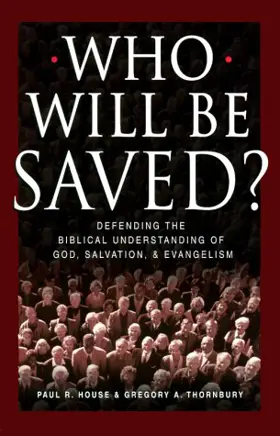

Who Will Be Saved?: Defending the Biblical Understanding of God, Salvation, and Evangelism
Of the many doctrinal challenges facing the church today, the most critical may be opposition to the traditional, biblical view of God and the doctrine of salvation. For centuries Christians agreed that God is sovereign, that He does not change, that He is both kind and all-powerful. Yet in recent decades process theologians have regularly depicted God as a constantly evolving deity, and postmodernists have defined Him in diverse, even contradictory ways. A number of scholars--some with evangelical roots or affiliations--have even gone so far as to claim that salvation may come through other religions and not exclusively through a conscious personal relationship with Jesus Christ.
Given these internal and external challenges, evangelical Christianity must reassert the inerrant, biblical definition of God and the doctrine of salvation, and do so in a way that is convincing in our postmodern setting. That is the goal of Who Will Be Saved?
Some of the most significant figures in evangelical theology--including Carl F.H. Henry, D. A. Carson, and R. Albert Mohler--explore the traditional view of salvation through a contemporary lens, beginning with the doctrine of God as the author of salvation. They then move on to the pressing matters confronting Christians today--the exclusivity of Christianity, the work of the church, our evangelism strategies--that are driven by one's conclusions about the doctrine of God. The biblical response to inclusivist perspectives presented here will empower Christians to faithfully and convincingly continue declaring the gospel message in these postmodern times.